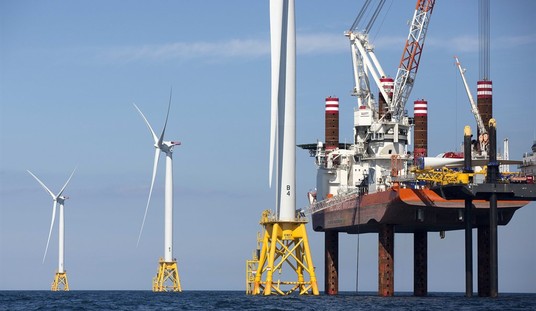A leftover from this weekend’s ABC/WaPo poll that made waves on Twitter thanks to a Politico reporter, who recognized a classic “man bites dog” in the crosstabs when he saw one. Evangelicals are supposed to have a high bar for moral character, especially compared to godless heathens like me. If you’ve followed any Republican presidential primary, you know that candidates with multiple divorces, infidelities, and so forth are always treated with skepticism early on due to the belief that they’ll never play in evangelical-heavy Iowa. Then along came Trump, who did indeed fail to play in Iowa — he finished behind Cruz, you’ll remember — but played just fine among the GOP’s evangelical southern base.
So much for “strong moral character”:
Do you think Trump has strong moral character?
· White evangelicals: 44%
· Atheists: 18% pic.twitter.com/FAfFPoVeUI— Dan Diamond (@ddiamond) October 16, 2016
By a two-to-one margin, registered voters say Trump doesn’t clear the bar. White evangelicals, however, are much more likely to say that he does whereas those without a religion are much less likely to say so. What gives?
The answer, as in most things these days, is partisanship. Here’s the composition of the Republican coalition in 2014 according to Pew. White evangelicals make up more than a third of all Republicans, with “unaffiliated” a mere 14 percent.

Now here’s the composition of the Democratic coalition. What’s different?

“Unaffiliated,” by the way, doesn’t mean “atheist,” as Politico’s reporter suggested in the tweet. (“Atheists have higher moral standards than evangelicals” was a headline too sexy to resist, it seems.) Atheists don’t believe in God whereas most people who describe themselves as having “no religion” do believe — 61 percent, in fact, per Pew’s data. “No religion” refers to their lack of association with an organized faith, not their lack of belief in a higher power. Atheists are just a small fraction of overall “unaffiliateds,” one percent of the GOP in 2014 and five percent of the Democratic Party.
But never mind that. The point in the two graphs above is that the unaffiliated/no-religion group has a conspicuous partisan skew, composing twice as large a share of the left’s party of choice than the right’s. In fact, “unaffiliateds” are now the single largest religious demographic among Democrats. Pretty obviously, the low moral standard for Trump among evangelicals and the higher standard among the “unaffiliateds” are byproducts of their partisan leanings: Evangelicals lean right so they’re viewing the Republican nominee through more of a rose-colored lens while “unaffiliateds” lean left and are consequently more skeptical of him. There may be something else going on too, though. It may be that pro-Trump evangelicals and pro-Trump “unaffiliateds” feel different degrees of cognitive dissonance in choosing to vote for a man with weak moral character. That is to say, if you like Trump and you have no religion, you might feel freer in admitting that his character is bad but that he’s worth voting for anyway than you would if you’re a Bible-believing Christian. Both might prefer Trump on a lesser-of-two-evils basis to Clinton, but the Christian might need to believe that he’s voting for a strongly moral person and thus will end up convincing himself in the end that he is. Whether it would be better for evangelicals in that position to abandon “values” forthrightly as a metric in judging politicians or better for them to quietly lower their moral standards as circumstances require to justify a vote for a given candidate, I’ll leave to the faithful to hash out.








Join the conversation as a VIP Member